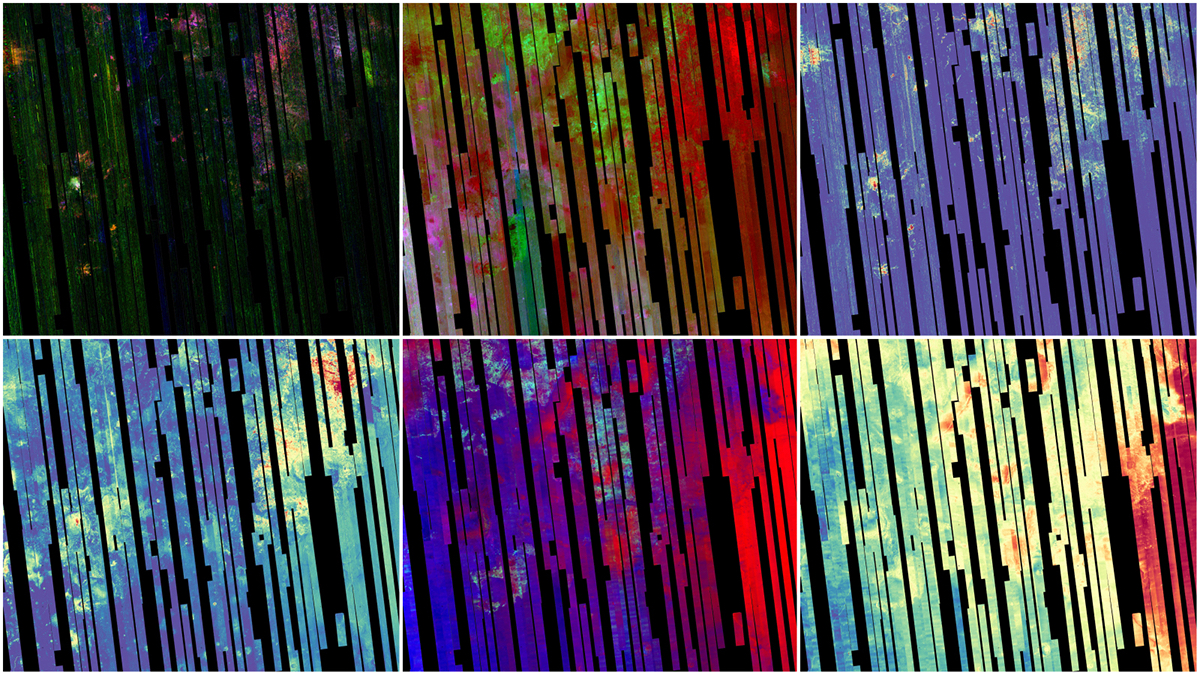Six Views Of Nili Fossae, As Seen By MRO’s CRISM

This image shows six views of the Nili Fossae region of Mars captured by the Compact Reconnaissance Imaging Spectrometer for Mars, or CRISM, one of the instruments aboard NASA’s Mars Reconnaissance Orbiter. The varying colors represent minerals on the Martian surface seen in different wavelengths of light.
Each of these views was produced as part of a near-global map made up of about 1,764 individual segments. The 72-color map is the last major dataset CRISM will ever produce; the instrument will be decommissioned by the end of 2022.
Data for the 6.3-gigapixel map was collected over 11 years of CRISM operations. The instrument arrived at Mars with three cryocoolers that allowed it to see in a range of wavelengths, including infrared; in 2017, the last of those cryocoolers stopped working, severely limiting the number of wavelengths CRISM could “see.”
MRO is led by NASA’s Jet Propulsion Laboratory in Southern California on behalf of NASA’s Science Mission Directorate in Washington. Johns Hopkins University’s Applied Physics Laboratory in Laurel, Maryland built and leads the CRISM instrument.
For more information, visit:








